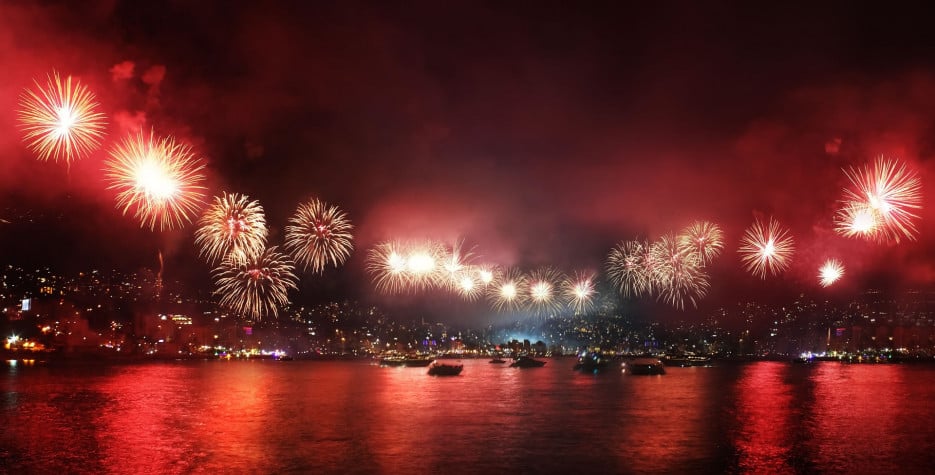When is Lebanese Independence Day?
On this day in 1943, Lebanon’s constitutionally elected leaders were released from detention by French occupation forces after their commanders backed down and accepted the independence of Lebanon.
Hence November 22nd came to be Independence Day and Lebanon's National Day - a day when the Lebanese people remember their freedom with speeches, parades and flags.
History of Lebanese Independence Day
After the Vichy government assumed power in France in 1940, General Henri-Fernand Dentz was appointed as the high commissioner of Lebanon. This appointment led to the resignation of Emile Iddi on April 4th 1941. Five days later, Dentz appointed Alfred Naqqash (also given as Naccache or Naccash) as head of state. The Vichy government's control ended a few months later when its forces were unable to repel the advance of French and British troops into Lebanon and Syria. An armistice was signed in Acre on July 14th 1941.
After signing the Acre Armistice, General Charles de Gaulle visited Lebanon, officially ending Vichy control. Lebanese national leaders took the opportunity to ask de Gaulle to end the French Mandate and unconditionally recognize Lebanon's independence. As a result of national and international pressure, on November 26th 1941, General Georges Catroux, delegate general under de Gaulle, proclaimed the independence of Lebanon in the name of his government.
Did you know?
Lebanon is the only Middle Eastern country that doesn’t have a desert.
The United States, Britain, the Soviet Union, the Arab states, and certain Asian countries recognized this independence, and some of them exchanged ambassadors with Beirut. However, even though the French technically recognized Lebanon's independence, they continued to exercise authority.
General elections were held and on September 21st 1943. On November 8th 1943, the Chamber of Deputies amended the Constitution, abolishing the articles that referred to the Mandate and modifying those that specified the powers of the high commissioner, thus unilaterally ending the Mandate. The French authorities responded by arresting a number of prominent Lebanese politicians, including the president, the prime minister, and other cabinet members, and exiling them to the Castle of Rashayya (located about sixty-five kilometres east of Sidon). This action united the Christian and Muslim leaders in their determination to get rid of the French.
Did you know?
Byblos in Lebanon is the oldest documented and continuously inhabited city in the world. Artifacts from Byblos have been dated to 5000 BC. It is also the city where the word “Bible” is derived from.
France, finally yielding to mounting internal pressure and to the influence of Britain, the United States, and the Arab countries, released the prisoners at Rashayya on November 22nd 1943; since then, this day has been celebrated as Independence Day.
The country’s independence became effective on January 1st 1944 and it wasn't until 1946 that the last French and British troops left Lebanon.
Each year, the capital city of Beirut, which suffered particularly in the fight for independence, organises festivities, starting with the traditional speech to the nation the day before by the President. For several days, Lebanon comes alive with the colours and rhythm of the various cultural events.


